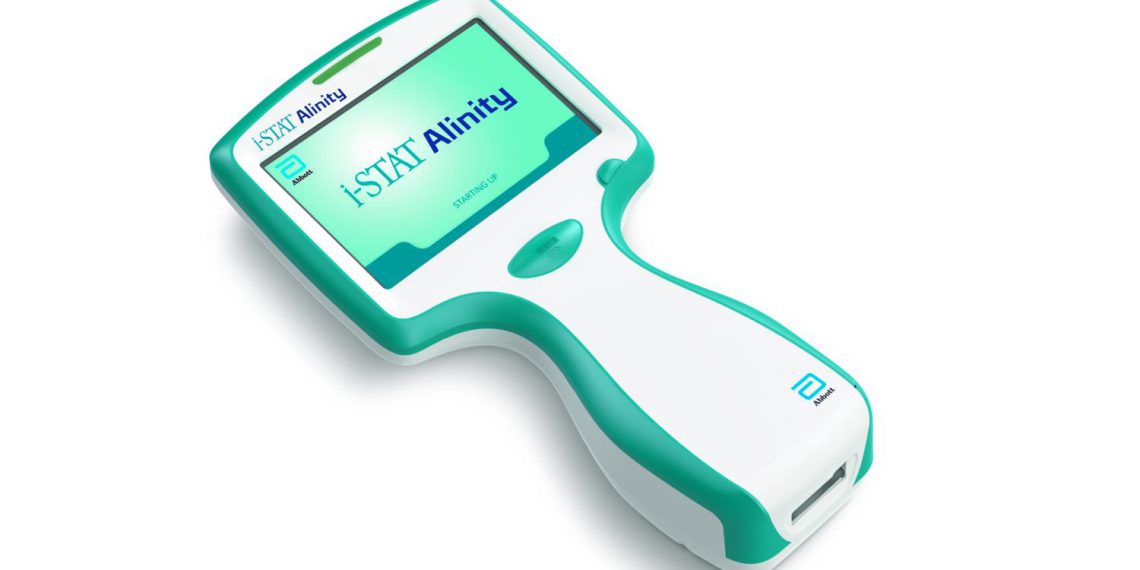Abbott has now received CE Mark approval for the i‑STATTM TBI plasma test. This is the first portable rapid blood plasma test for traumatic brain injury. It can help clinicians evaluate individuals with suspected mild SHT, including concussions. The test is performed on the i‑STATTM AlinityTM portable platform. Test results are available approximately 15 minutes after plasma is added to the test cartridge.
Severe SHT, including concussion, is a change in brain function caused by an external impact. The new test measures certain proteins that are present in the blood after a mild SHT. A negative test result can help rule out the need for a CT scan of the head, which is commonly used to diagnose concussion. In the case of positive test results, this test complements CT scans and helps physicians further evaluate patients who may have a mild SHT.
Impairments associated with SHT, which can include physical and psychological sequelae, are exacerbated by misdiagnosis or lack of diagnosis. Abbott’s blood plasma test provides healthcare professionals with an objective tool to evaluate individuals suspected of having a brain injury.
“The availability of this blood plasma test could help reduce emergency room wait times and reduce unnecessary CT scans by up to 40%. We hope this will encourage more people to get tested after a head injury so the right treatment steps can be taken.”
- Beth McQuiston, M.D., Medical Director
For the test, a small sample of blood is taken from the arm, from which plasma is extracted with a centrifuge and applied to the test cartridge. The cartridge is then inserted into the analyzer.
The company is also working on a whole-blood test that eliminates the need to separate the plasma and can be used directly on patients in a medical facility. Abbott’s vision for the future goes beyond that: the goal is a portable test, with potential for use outside the clinic. This could help people with head injuries quickly assess their condition during sports, for example.
Speed and accuracy in diagnosis required
It is estimated that about 69 million people worldwide suffer a severe traumatic brain injury each year. People who have suffered an SHT may experience impairments in memory, motor and sensory perception (e.g., vision and hearing), and emotional function (e.g., personality changes, psychological symptoms). The effects of a SHT can last from a few days to years with life-altering symptoms. Those affected by traumatic brain injury, are more likely to suffer further brain injuries — similar to a sprained ankle or torn ligament, which are more susceptible to further injury. Reducing the time between injury and diagnosis is a critical factor in treating SHT.

















